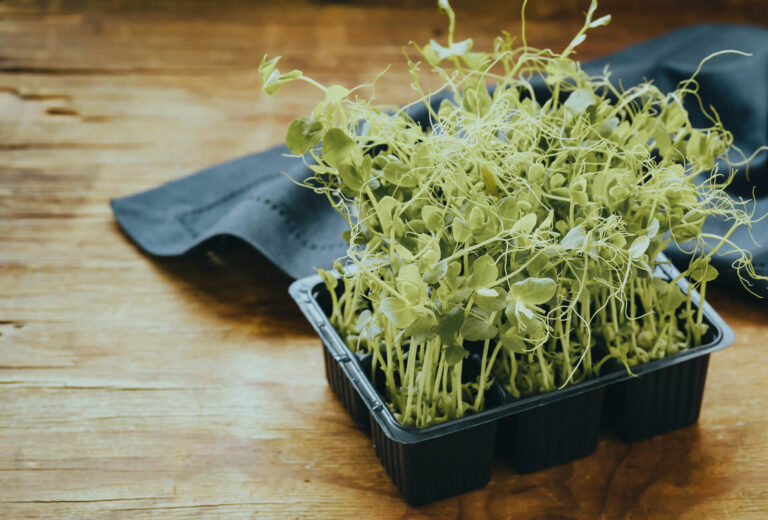What exactly is agroecology?
- Our Sustainable Farm (OSF)
Agroecology refers to a holistic farming approach that emphasizes the use of natural processes and systems to produce food. To maintain soil fertility and protect biodiversity, agroecology employs techniques such as cover crops, composting, and intercropping rather than synthetic fertilizers and pesticides. This approach contributes to the development of a self-sustaining system that benefits not only the environment but also the farmers and their communities. Agroecology is based on the intersection of scientific disciplines, agricultural practices, and social movements, with a focus on social transformation achieved through transdisciplinary, participatory, and change-oriented research and actions.

What Is the Appeal of Agroecology in Tuscany?
Agroecological farming has grown in popularity in Tuscany, Italy, in recent years. This agricultural approach combines scientific knowledge with traditional methods to create a more environmentally friendly and sustainable farming method. In this section, we’ll look at why agroecology is so popular in Tuscany and how it’s changing the way people think about food production.
To begin, it is critical to understand what agroecology is. It is a holistic farming approach that considers the entire agroecosystem and its interactions. This means that agroecologists look at the soil, water, air, and other factors that contribute to a healthy ecosystem as well as the crops being grown. Farmers in Tuscany can create a more sustainable and resilient way of growing food by using this approach.


Agroecological Approach to Farming for Sustainable Development: The Indian Scenario
The region’s long history of sustainable agriculture is one of the main reasons why agroecology is popular in Tuscany. Tuscany is famous for its rolling hills, fertile soil, and active food culture. Farmers in Tuscany have used traditional methods to grow crops and care for the land for centuries. Agroecology is simply a modernization of these practices that emphasizes scientific knowledge and evidence-based methods.

Another reason for agroecology’s popularity in Tuscany is the region’s emphasis on high-quality food production. Tuscany is home to some of Italy’s most well-known wine and olive oil producers, as well as a thriving food culture that emphasizes fresh, local ingredients. Farmers in Tuscany can produce high-quality food that is both delicious and environmentally friendly by employing agroecological methods.
The growing interest in sustainable living is another factor driving the popularity of agroecology in Tuscany. People are becoming increasingly concerned about the environmental impact of traditional farming practices, and they are looking for alternatives. Agroecosystems provide a means of producing food that is both environmentally friendly and economically viable. This is especially important in Tuscany, where the tourism industry is based on the region’s reputation for high-quality food and scenic beauty.


Finally, the popularity of the Tuscan agroecosystem can be attributed to the support and resources made available to farmers. In the region, there are numerous organizations and initiatives dedicated to promoting agroecology and providing farmers with the knowledge and resources they need to succeed. This includes training programs, technical assistance, and product market access.
As a result, we can say that agroecology is becoming more popular in Tuscany for a variety of reasons, including the region’s long history of sustainable agriculture, a focus on quality food production, a growing interest in sustainable living, and the support and resources available to farmers. Farmers in Tuscany can produce high-quality food in a sustainable, eco-friendly, and economically viable manner by employing agroecological methods.
ADVANTAGES OF AGROECOLOGY

Agroecology can help protect biodiversity
One of the most important advantages of agroecology is its ability to protect biodiversity. Cover crops, composting, and intercropping are examples of agroecological farming methods used in Tuscany to help maintain a healthy and diverse agroecosystem. These techniques aid in the reduction of erosion, the preservation of soil fertility, and the provision of habitat for beneficial insects and wildlife. Farmers can ensure that their farming practices are in harmony with the natural world by employing agroecology.


Enhance livelihoods and the local economy
In Tuscany, Italy, agroecology is improving livelihoods and supporting the local economy in a variety of ways:
Farmers in Tuscany can produce high-quality, in-demand products such as olive oil, wine, and cheese using agroecological methods. Farmers’ income may increase because of their ability to sell their products at a higher price due to the high demand for sustainably produced food.
Agroecology promotes the use of local resources such as compost and cover crops, which reduces the need for external inputs while also benefiting the local economy. This also means that farmers can keep production costs low, potentially increasing profitability.
Agroecology promotes rural development, which helps create self-sustaining communities. Farmers can provide stable and secure livelihoods for themselves and their families by using sustainable methods, which can help reduce migration from rural to urban areas.
Agroecology helps to strengthen local supply chains by connecting farmers to local markets and consumers. This helps to keep agricultural wealth in the local economy, which can help boost local development and reduce poverty.

Conclusion
Agroecology is a sustainable and environmentally friendly farming method that is gaining popularity in Tuscany, Italy. Farmers can produce high-quality products, protect biodiversity, and improve their communities’ livelihoods by using agroecological methods. Consider the benefits of agroecology if you are a Tuscan farmer or looking for a more sustainable way to farm and take the first step toward a greener future.


SUMMARY:
Agroecology is a holistic farming approach that emphasizes the use of natural processes and systems to produce food. It is based on the intersection of scientific disciplines, agricultural practices, and social movements, with a focus on social transformation achieved through transdisciplinary, participatory, and change-oriented research and actions. Agroecological farming has grown in popularity in Tuscany, Italy, due to its long history of sustainable agriculture and its emphasis on high-quality food production. Agroecologists look at the soil, water, air, and other factors that contribute to a healthy ecosystem as well as the crops being grown. Agroecology is becoming increasingly popular in Tuscany due to the region’s long history of sustainable agriculture, a focus on quality food production, a growing interest in sustainable living, and the support and resources available to farmers.
Advantages of agroecology include its ability to protect biodiversity, reduce erosion, preserve soil fertility, and provide habitat for beneficial insects and wildlife. Farmers can ensure their farming practices are in harmony with the natural world by employing agroecological methods. Agroecology is a sustainable and environmentally friendly farming method that is gaining popularity in Tuscany, Italy. It helps farmers produce high-quality products, protect biodiversity, and improve their communities’ livelihoods. It also promotes the use of local resources, rural development, and local supply chain support. Farmers can benefit from agroecology by producing high-quality products, protecting biodiversity, and improving their livelihoods.

REFERENCES
Gliessman, 2016; Mendez et al., 2013; Anderson et al., 2021
I. S. Bisht (2021, September 30) IntechOpen
Anderson (C.) (2022, December 14) Agroecology: A Promising Alternative to Agriculture’s and Industrial Food Systems’ Biodiversity Crisis the Collaborative for Agroecology and Livelihoods (ALC)







